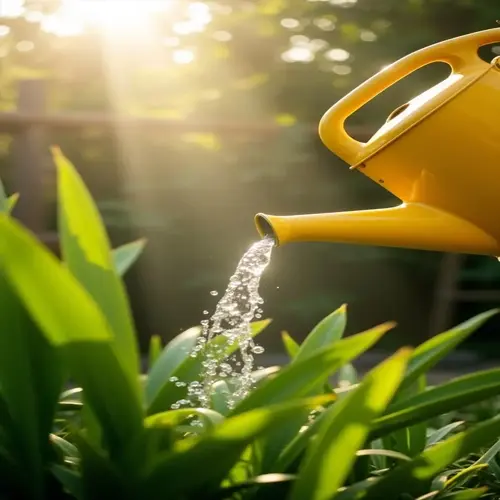How do I safely lower soil pH?

Written by
Olivia Mitchell
Reviewed by
Prof. Samuel Fitzgerald, Ph.D.Safe reductions in soil pH require knowledge of various amendment methods and their use. Some acid-loving plants require particular conditions to flourish fully, and adjusting the soil pH will be necessary. Options range from slow-acting amendments, such as elemental sulfur, to immediate amendments, like aluminum sulfate. Each amendment has different safety concerns, as well as specific time intervals during which it is effective. When applied correctly, there can be no damage to plants, and the desired acidity can be obtained.
Elemental Sulfur
- Apply 1 lb per 100 sq ft per pH unit reduction
- Takes 3-6 months for full effect
- Safe for long-term soil biology
Aluminum Sulfate
- Works in 2-4 weeks for quick correction
- Use 5 lb per 100 sq ft per 0.5 pH drop
- Avoid overapplication causing aluminum toxicity
Organic Options
- Pine needles maintain surface acidity seasonally
- Vinegar solutions (1 cup/gal water) for containers
- Coffee grounds provide minimal temporary effect
In the fall, use elemental sulfur to gradually lower the pH before planting in the spring. Apply 6 inches deep to moist soil and water thoroughly afterward to prime soil bacteria. Over a period of months, this process naturally, safely, and effectively creates sulfuric acid. Don't touch amendments directly. Gloves are highly recommended for handling.
Aluminum sulfate acts quickly than gypsum, but it must be measured carefully. If you use too much, sulfur can build up to levels that damage plants, as well as bacteria and fungi in the soil. Save it for emergency modifications when planting acid-loving plants in alkaline soil. If you splatter foliage during application, be sure to rinse it off right away.
Organic amendments, such as pine needles, are considered more for maintenance rather than making a significant pH change. Apply mulch annually as needed, after testing reveals small changes. Vinegar solutions are only effective as temporary fixes for container plants. Never apply to garden beds, as it will harm beneficial organisms.
Geographic conditions shape amendment decisions. Areas with high rainfall conditions require more frequent applications of sulfur than arid areas. Always retest soil 4-6 weeks after amending. If sulfur is selected as the amendment, use it carefully in combination with other methods. For example, apply sulfur for foundation correction and add it to layers that will serve as the maintenance layer, such as pine needles.
Read the full article: 10 Acid Loving Plants for Your Garden

